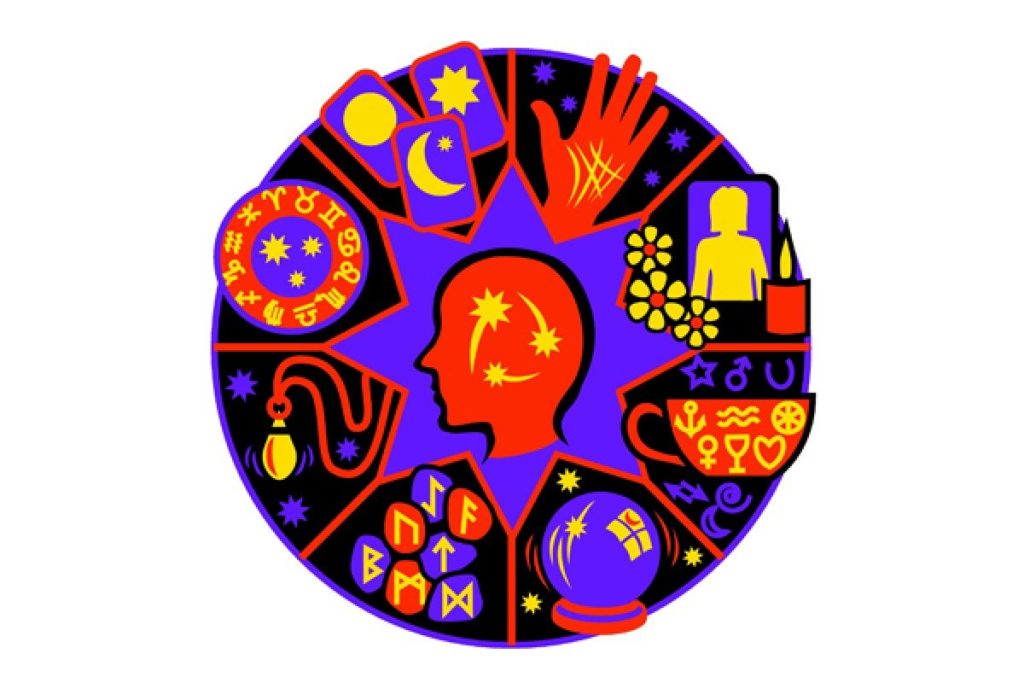Pseudoscience in our daily life
Have you ever heard of the term ‘Pseudoscience’? If you haven’t it’s highly possible that you have experienced it in some form in your life. Let’s consider the following examples:
- Recall the personality tests you take on Facebook that tell you about your traits
- Quizzes like when you will get married, who your life partner will be, what you want in life etc.
- Word puzzles that claim the first three words you see are your reality or are your personality traits.
- Astrology: Horoscopes & star signs
- Blood type personalities
- Palmistry i.e. telling your future by reading the lines on your hands
- Fortune telling from cards, Psychics, Omens, signs, or superstitions

What is Pseudoscience?
So what does it mean if we say these are pseudoscience? In simple words, it means these are ‘False sciences’ or ‘shams’. Pseudoscience includes all those methods or systems that claim to have scientific bases. They even share certain characteristics with science but are not actually scientific.
Astrology: A popular pseudoscience
Consider the biggest example of horoscopes. Astrologists claim that the position of the heavenly bodies in space at the time of our birth determines our personality traits & future. Based on this, they describe different star signs with unique traits e.g. Capricorn, Aries, Pisces, Sagittarius, Libra, etc. They also make multiple claims using horoscopes. These tell how our day would go or what will happen in the near future. Similarly, they establish which stars are compatible with each other as life partners or friends.
Since human beings are quite curious about themselves, they look for explanations. Unfortunately, they fall for Astrology and all the other sciences faking to be authentic. Like innocent fools, we believe their trickery and spend money on them. Sometimes, we even make major life decisions based on what they say and lead our daily lives according to them.

We can’t blame ourselves too harshly either. Since the persuasive arguments, references to authority figures, and anecdotes about other people’s experiences seem all too real. Even the descriptions of personality given seem accurate and in line with how we see ourselves. So, what is actually happening here? How do we fall for it even though we consider ourselves quite intellectual and smart? The answer is the Barnum effect.
The Barnum Effect
To understand the Barnum effect, consider the following description and see whether it rings true with your personality:
Your Personality Report
You have your strengths and your weaknesses. But much of the time you do not give yourself enough credit for your strengths. You are one of those people who have the inner potential for change, but you need to pay more attention to your own feelings. So that you can determine the right direction for yourself.
Many times you find yourself to be in conflict as your inner impulses have run up against the limits of social rules and moral codes. Most of the time you manage to resolve conflict in a way that makes sense to you, but now and then you have doubts and wonder whether you have done the right thing. You often would like to be doing two or more things at the same time, and you occasionally resent the fact that you cannot.
There is an inner ‘you‘ known to you alone, and you often present a face to the world that does not entirely reflect your genuine thoughts and feelings. And now and then you look at the things you have done, and the path that you have taken, and you have some doubt as to whether it is all worth it.
Seemed real, didn’t it? So, how could I tell you this even though I haven’t met you or even asked you to take a ‘personality quiz’? The answer is given by P.T Barnum. He said human beings have a tendency to accept overgeneralized descriptions of themselves as accurate portrayals of their real personality. In other words, such fake personality reports contain statements that apply to almost everyone. They are not specific to one person i.e., you. Astrologers, psychics, fortune tellers, and all the fake sciences mentioned above are experts at using the Barnum effect.
Decide what you want to do next.
Sadly, we want to believe in magic, fantasies, and fiction rather than using our minds to think critically. Scientific research is less comforting than a hopeful promise made by these figures. We want to live in a world of illusion where our problems aren’t real and there’s nothing wrong with ‘us’. If you are one of those people who wants to face reality and figure out how to differentiate between real psychology and the above pseudoscience, you are more than welcome to check out this article. Similarly, many popular self-help books use pseudoscientific claims. Read this article, Are Self-Help Books legit?: 10 things to look for finding the right book to help you avoid such books.



 Healing Your Inner Child: A Short Guide
Healing Your Inner Child: A Short Guide  What You Need to Know About Trauma & its effects
What You Need to Know About Trauma & its effects  Dealing with a Narcissistic Parent: Strategies and Support
Dealing with a Narcissistic Parent: Strategies and Support  Understanding the MBTI Personality Types
Understanding the MBTI Personality Types  Understanding the Big Five Personality Traits
Understanding the Big Five Personality Traits  Body Image: what it entails and how it affects you
Body Image: what it entails and how it affects you